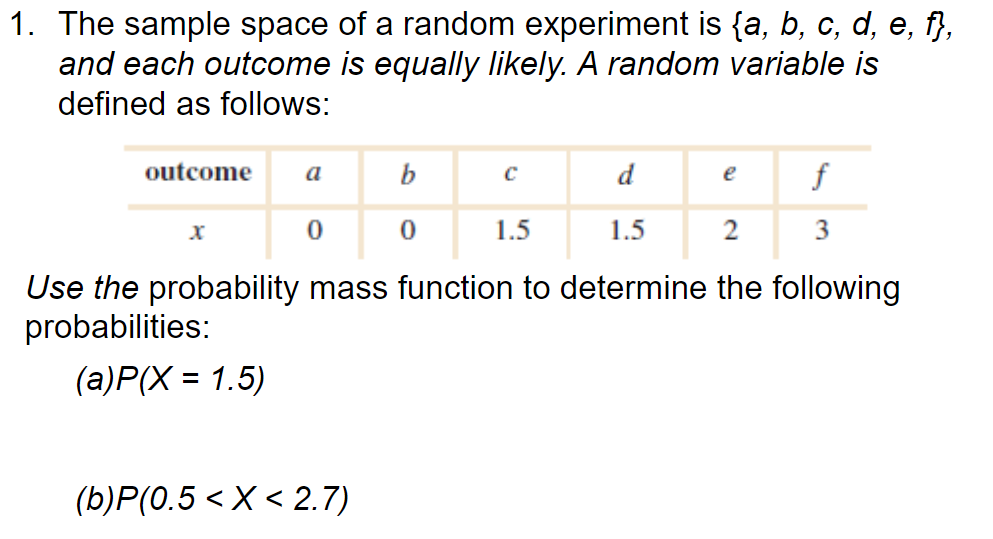The sample space of a random experiment is {a, b, c, d, e, f}, and each outcome is equally likely. A random variable is defined as follows: outcome a b d 1.5 1.5 3 se the probability mass function to determine the following
The sample space of a random experiment is {a, b, c, d, e, f}, and each outcome is equally likely. A random variable is defined as follows: outcome a b d 1.5 1.5 3 se the probability mass function to determine the following
College Algebra
7th Edition
ISBN:9781305115545
Author:James Stewart, Lothar Redlin, Saleem Watson
Publisher:James Stewart, Lothar Redlin, Saleem Watson
Chapter9: Counting And Probability
Section9.4: Expected Value
Problem 1E: If a game gives payoffs of $10 and $100 with probabilities 0.9 and 0.1, respectively, then the...
Related questions
Question

Transcribed Image Text:1. The sample space of a random experiment is {a, b, c, d, e, f},
and each outcome is equally likely. A random variable is
defined as follows:
outcome
b
d
e
f
a
1.5
1.5
2
3
Use the probability mass function to determine the following
probabilities:
(a)P(X = 1.5)
(b)P(0.5 < X < 2.7)

Transcribed Image Text:Use the probability
probabilities:
mass function to determine the following
(c) P(X > 3)
(d) P(0 s X < 2)
(e) P(X = 0 or X = 2)
Expert Solution
This question has been solved!
Explore an expertly crafted, step-by-step solution for a thorough understanding of key concepts.
This is a popular solution!
Trending now
This is a popular solution!
Step by step
Solved in 2 steps with 2 images

Recommended textbooks for you

College Algebra
Algebra
ISBN:
9781305115545
Author:
James Stewart, Lothar Redlin, Saleem Watson
Publisher:
Cengage Learning

College Algebra
Algebra
ISBN:
9781305115545
Author:
James Stewart, Lothar Redlin, Saleem Watson
Publisher:
Cengage Learning